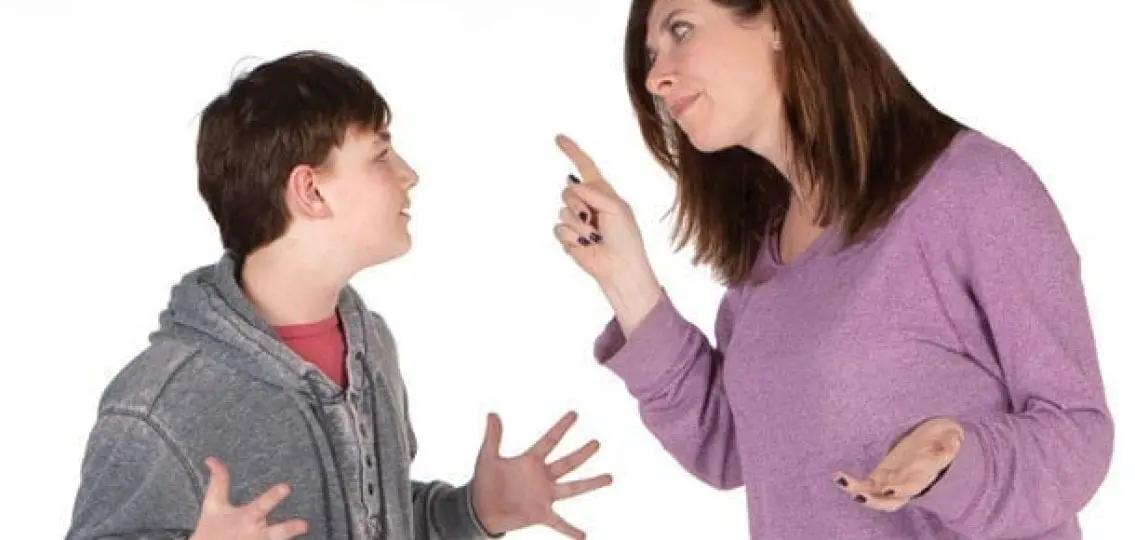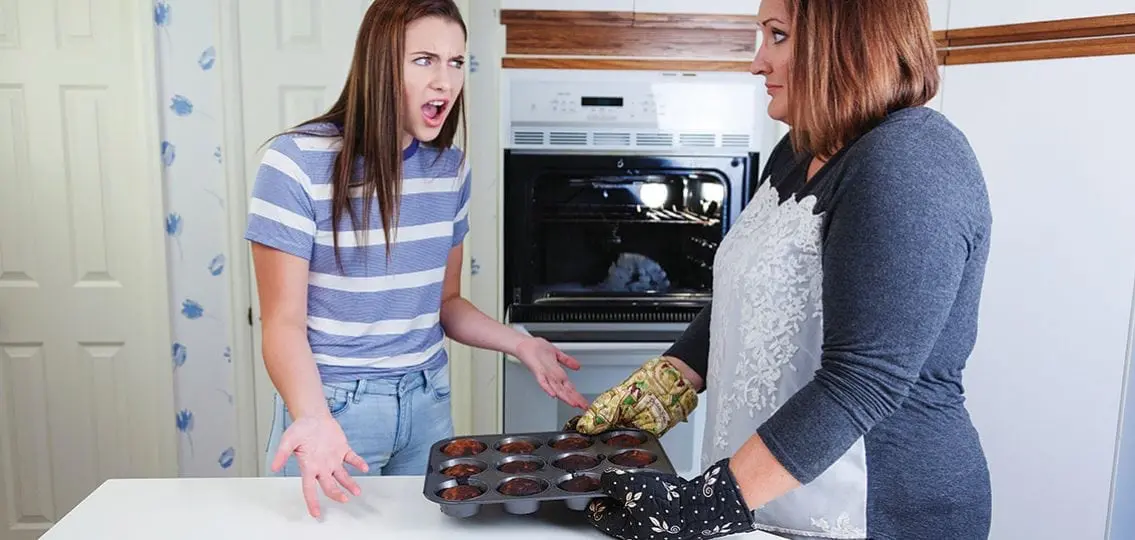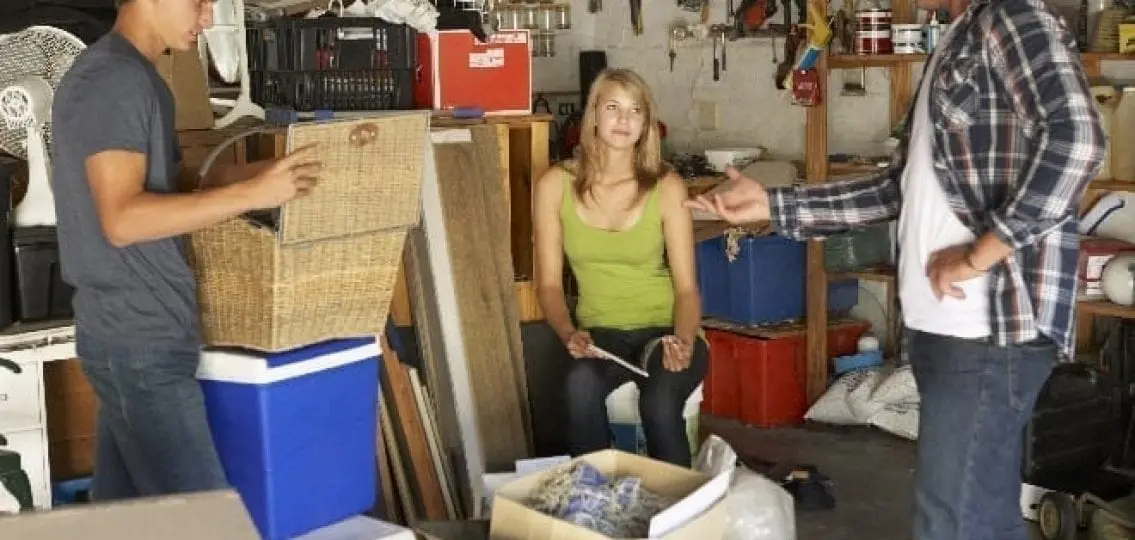How do you get your teenager to take out the trash without making the request seem like a military command?

Trash Duty
My wife asked my son to take it out, the days drifted by, and the trash didn’t move. On the night she raised her voice about it, Jesse shuffled to the kitchen, plopped the trash bin lid on the floor, and stared into the overflowing Glad bag. I could see he didn’t want to touch the bag, let alone pull the heavy mess from its bin. He looked at me and said, “How do you do it?”
I said, “I pull it out slowly and set it on the floor. Then I close the top, push out some of the air, and tie it up.”
He removed the bag and set it on the floor, stepping back as if its contents were alive.
He said, “Now what do you do?” I demonstrated. He then lifted the bag by its ties and toted it toward the garage.
A few days later, Shelley called to him from the kitchen, “I’d appreciate it if you’d take out the trash.”
Jesse called back, “I already took out the trash this week.”
Shelley’s volume rose a few decibels. “Well, I already cooked dinner this week, and Daddy already went to work this week.”
He mumbled something, but I don’t think it was, “Thanks for clarifying that, Mom.”
I suppose one of my conditions for fulfilling his dream of owning a high-powered Kawasaki dirt bike should have been trash duty. My mistake. Instead, I said he had to maintain top grades in school, show evidence of maturity, and get his mother to agree.
I was certain she’d say no.
My mistake again. Shelley had met a kind and intelligent woman who said that, after a long reluctance on her part, her whole family—Janie and her husband and three sons—was involved in dirt-bike racing.
So we went to watch Janie’s family race. When I tired of standing on a corner where racers sprayed mud on spectators, I sat beneath the family’s RV awning and petted their spaniel. Later Jesse asked, “Dad, do you think I could race some day?”
I said, “Not unless you can find an adult to take you. I don’t want to spend the rest of my summers at dirt bike races.” Going deaf, I should have added, and worrying about whether he would get run over. He said, “Maybe when I’m older.”
Respect is a Two Way Street
As a consolation, I drove him and his buddy with their dirt bikes to a large sandpit to practice. Sitting in a camp chair and wearing ear plugs, I read an interview with Susan Pauker, a pediatrician and president of the Harvard Pilgrim Healthcare Foundation, who was talking about Dr. Benjamin Spock.
“Dr. Spock lived at our home in Weston for a while when he was writing his autobiography, My husband was his cardiologist. One day, I was saying to my son: ‘I told you, those dishes have to go in the sink! They can’t be in the family room.’”
“And Dr. Spock said to me, ‘You need to treat your children as guests in your home—there’s no one more important in your home.’”
His words really spoke to Pauker. “I have turned his advice, now, into saying to parents: ‘If you’re teaching respect to teenagers, you’d better show respect for that teenager. After all, they get to choose the nursing home.’”
I thought then if Jesse ever got into dirt bike racing, my nerves would put me in that nursing home sooner than expected.
The Power of Saying Please
In the meantime, though, I considered the most effective means of teaching teenagers respect and respectfully guiding them towards adult responsibilities. Shelley and I had never barked orders at Jesse in any loud or obnoxious fashion. Our technique had mostly been to say, “You need to do this and this.”
But after reading Susan Pauker’s article, I used the word “please” more often. Such as, “Would you please take out the trash?” I think he realized that saying no was not an option, but it seemed like a more congenial and respectful method of communication. The closest he ever came to saying no was when he would say, “I’m really busy right now.”
Some years later, after retiring from dirt bike racing, Jesse took up sports car racing while working on his master’s degree in computer science and becoming the driver for the university-engineered race car. He was home one weekend while Shelley was away and had to contend with my cooking. As he left on Sunday to return to his apartment near the university, we hugged one another.

He said, “Thanks, Dad, for making the meals.”
I said, “Thanks for helping me store the canoe and fixing the bathroom fan.”




